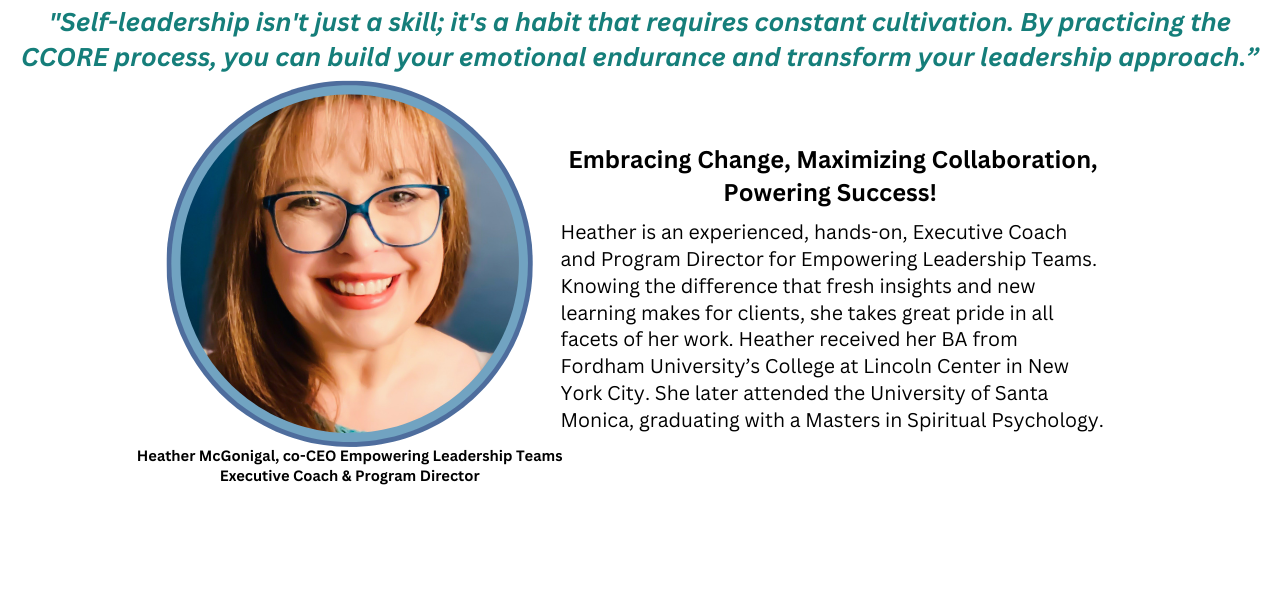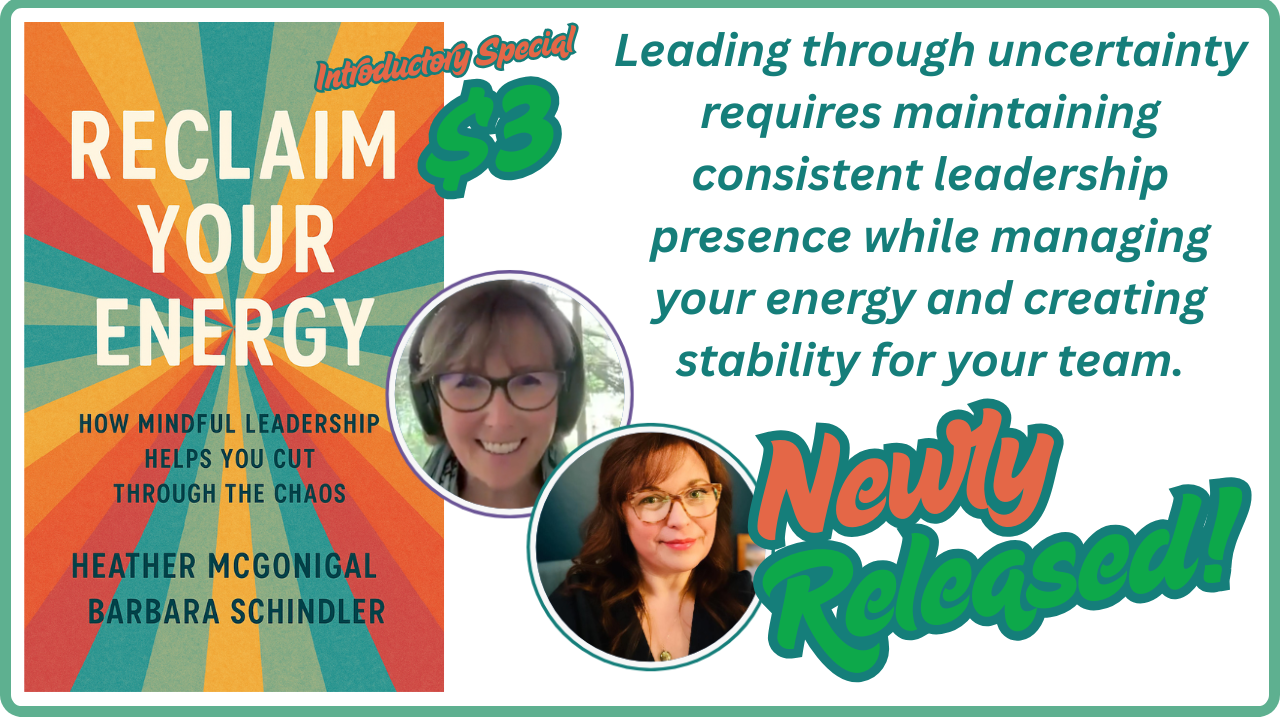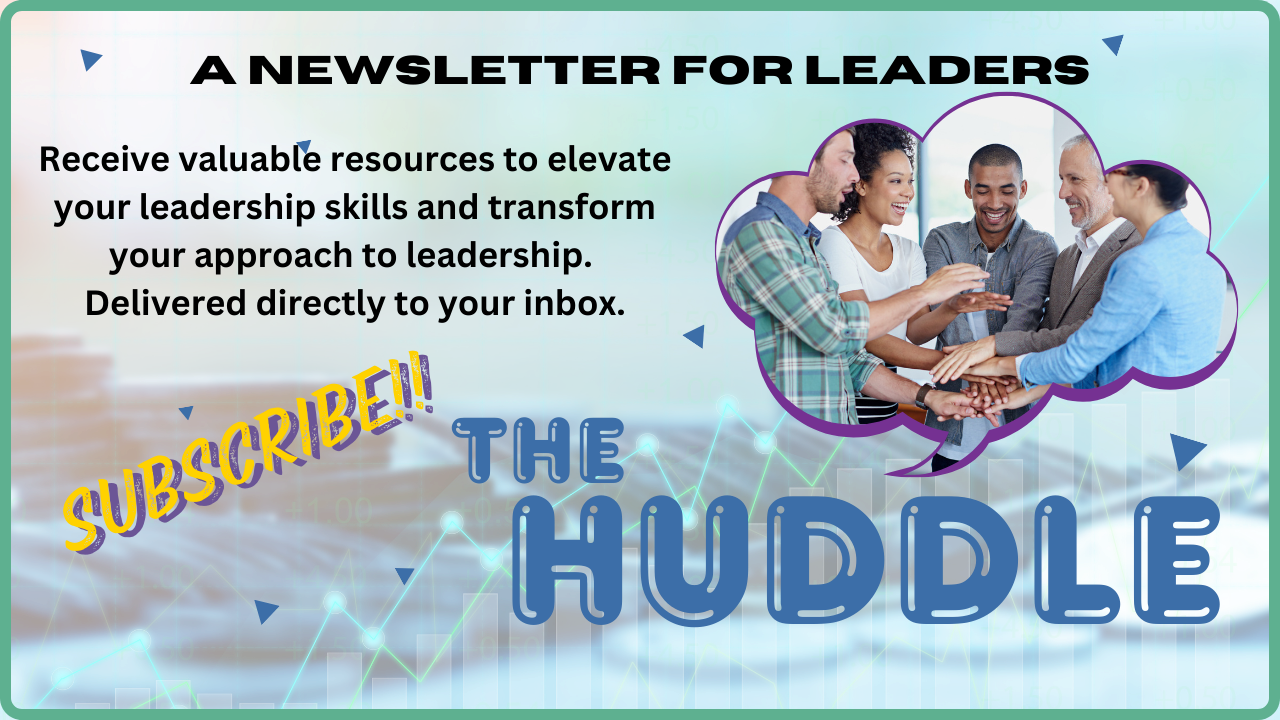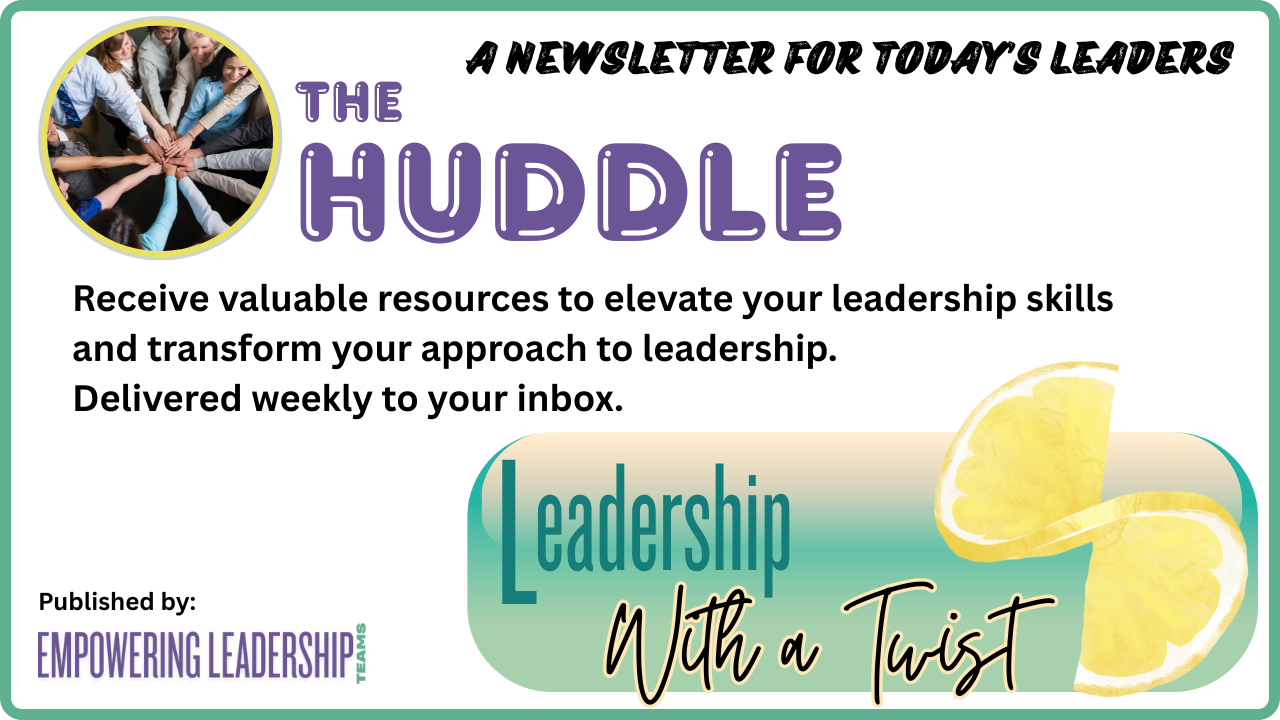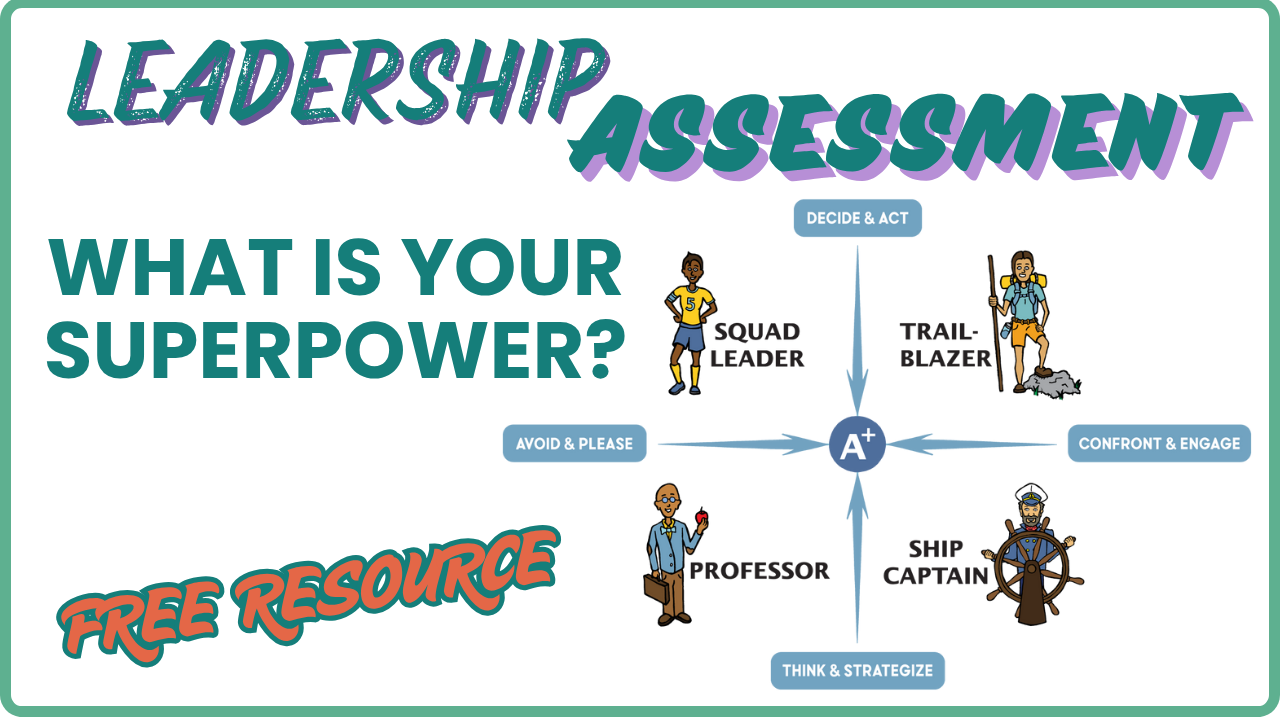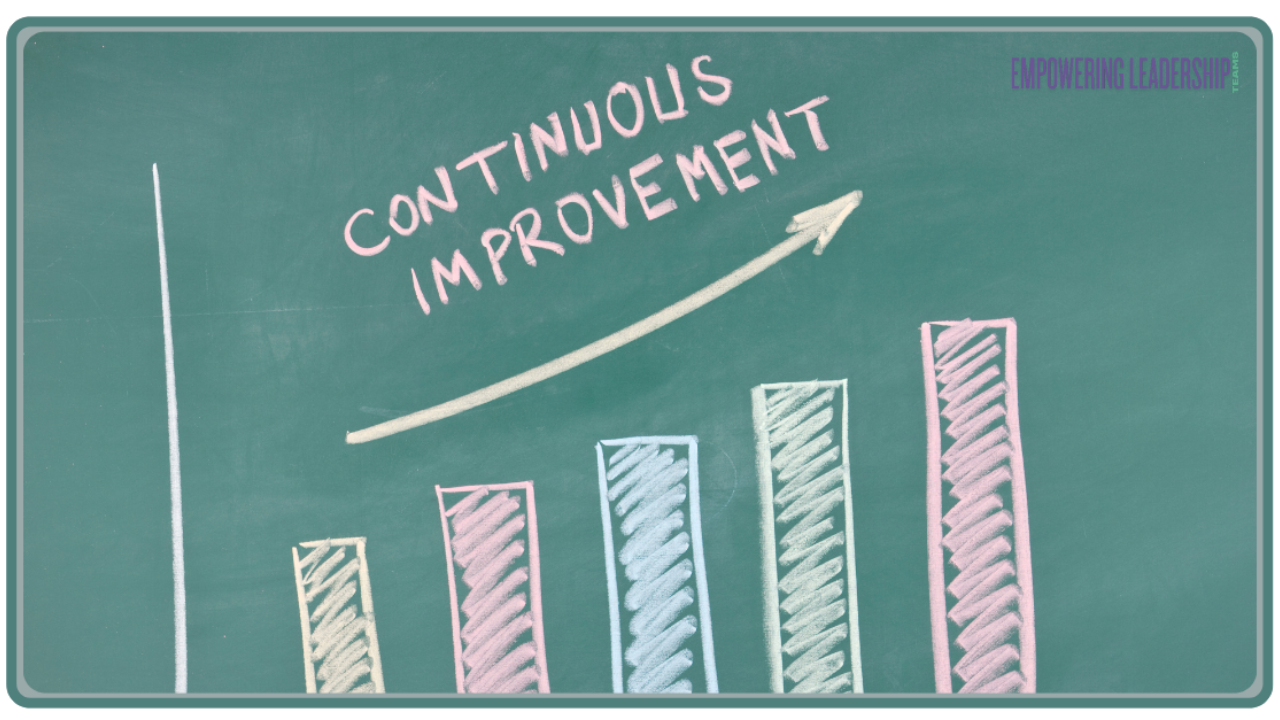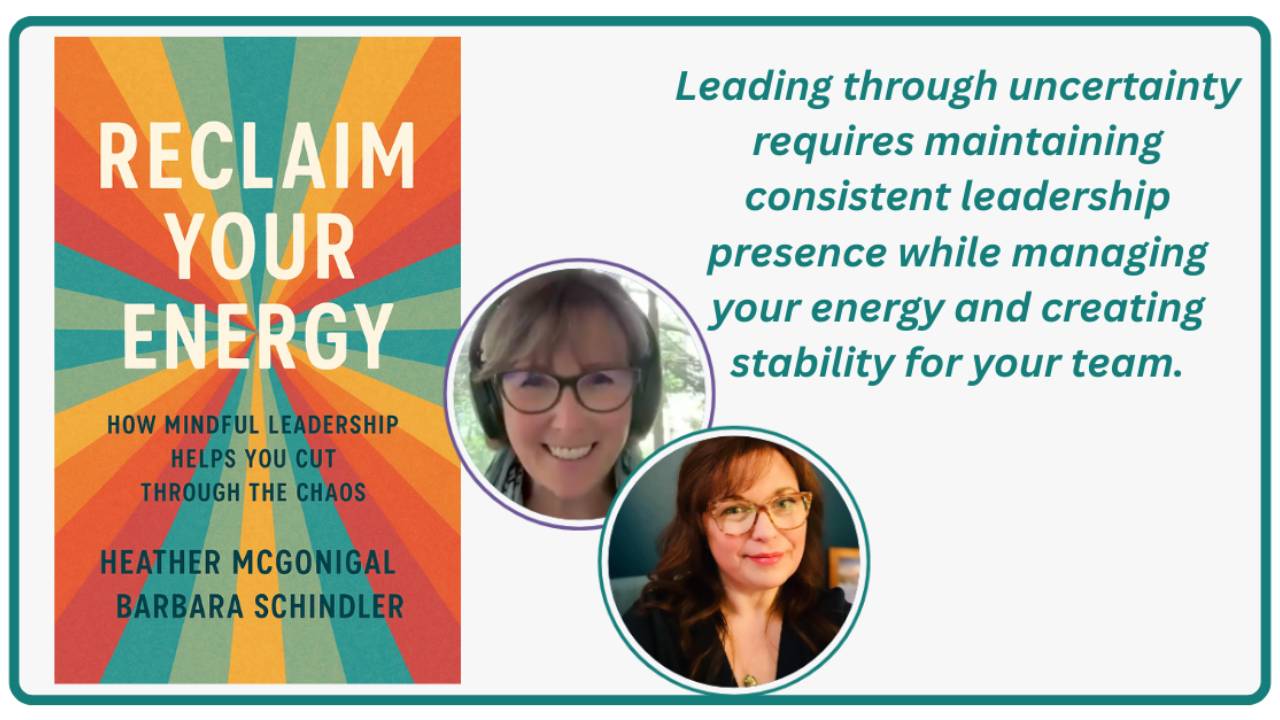Self-Leadership: The Key to Navigating Today's Business Challenges

In today’s rapidly changing business environment, self-leadership is more crucial than ever. As a leadership coach, I’ve seen firsthand how cultivating this skill can transform not only an individual’s performance but also the entire organizational culture.
Self-leadership is the cornerstone of personal and professional growth, enabling us to meet challenges with confidence, clarity, and focus. Whether you're a seasoned leader or just stepping into a leadership role, self-leadership will determine how effectively you inspire and guide others.
What Is Self-Leadership?
Self-leadership is about taking ownership of how you respond to situations, maintaining clarity in decision-making, and cultivating the discipline to stay aligned with your values and goals, regardless of external pressures.
When we strengthen our self-leadership, we develop an internal compass that empowers us to act deliberately rather than reactively. This foundation is essential not only for our personal development but also for the health and performance of our teams.
Why Self-Leadership Matters
Empowers Decision-Making
In moments of uncertainty, effective leaders need to make clear, confident decisions. Self-leadership helps cut through distractions and stay connected to core objectives, ensuring decisions are aligned with the bigger picture.
Builds Trust and Credibility
When we lead ourselves well, others are more likely to trust our judgment and follow our lead. Self-leadership builds credibility—we’re not just telling others how to act; we’re modeling the behaviors and attitudes that create success. This trust strengthens relationships and fosters collaboration.
Increases Adaptability
In a world that’s constantly evolving, adaptability is crucial. Self-leadership allows us to navigate change with grace, finding opportunities in disruption rather than being overwhelmed by it. By staying grounded in our own leadership, we can pivot quickly while maintaining a steady course toward our goals.
Creates Lasting Impact
Ultimately, self-leadership is about leaving a positive impact—not only on the results we achieve but also on the people we lead and interact with. Empowered leaders who are clear in their self-direction inspire others to lead themselves with purpose and integrity, creating a ripple effect of leadership throughout teams and organizations.
The CCORE Empowerment Process
To guide you in strengthening your self-leadership, I want to share a simple yet powerful tool with you—the CCORE Empowerment Process. This process helps leaders, and their teams navigate challenges with confidence and clarity by taking ownership of their emotional and mental responses.

Here’s how it works:
- Clarify the Situation: Start by gathering just the facts, without interpretation or emotional reaction.
- Choose Your Impact: Remember, while you can’t control everything, you can always choose how you show up.
- Observe Your Thoughts and Feelings: Notice them without letting them drive your actions.
- Release Judgment to Compassion: Let go of your stories and interpretations, finding compassion for yourself and others.
- Engage Your Secure Self: Connect with your abilities and move forward with a grounded sense of confidence and clarity, approaching the situation with a clear head.
Emotional Endurance: The Muscle You Need for Self-Leadership
The key to making this process effective is practice. Self-leadership is like building a muscle—it requires repetition and persistence. This practice strengthens emotional endurance—the capacity to stay present and make clear-headed decisions, even in the face of uncertainty or stress.
Initially, it might feel challenging or time-consuming to walk through each step of the CCORE process, especially when you're under pressure. However, with consistent application, these steps become second nature. They will enable you to navigate high-stakes situations with a calm, thoughtful approach, rather than reacting emotionally.
The Role of Self-Care in Self-Leadership
One crucial aspect of self-leadership that often gets overlooked is self-care. I often use the analogy of a car running on empty. Just as you wouldn’t expect your car to perform well without fuel, you can’t expect your mind to function at its best when you're running on empty. Ongoing self-care isn’t a luxury; it’s integral to your success as a leader.
Self-care looks different for everyone, but the essence remains the same: we must nurture ourselves physically, mentally, and emotionally. By staying attuned to our needs and investing in self-care, we build the energy reserves necessary to show up consistently and powerfully in our roles. You must do self-care so that you can have the ability to show up in self-leadership. Self-leadership is not available on an empty tank.
Moving Beyond Task Doers to Engaged Thinkers
Today’s organizations need more than just task doers or “a set of hands.” Success hinges on having engaged and empowered thinkers who actively contribute to problem-solving and innovation. The CCORE Empowerment Process empowers leaders to foster this shift—from teams simply executing tasks to teams thinking critically, innovating, and collaborating toward a shared vision.
So, I challenge you: Start practicing the CCORE process today. Build that muscle of emotional endurance. Prioritize your self-care. As you do, you'll find yourself transforming not just your leadership style, but your entire experience of work and life. The journey of self-leadership is ongoing, but I promise you, it's worth every step.
-Coach Heather
